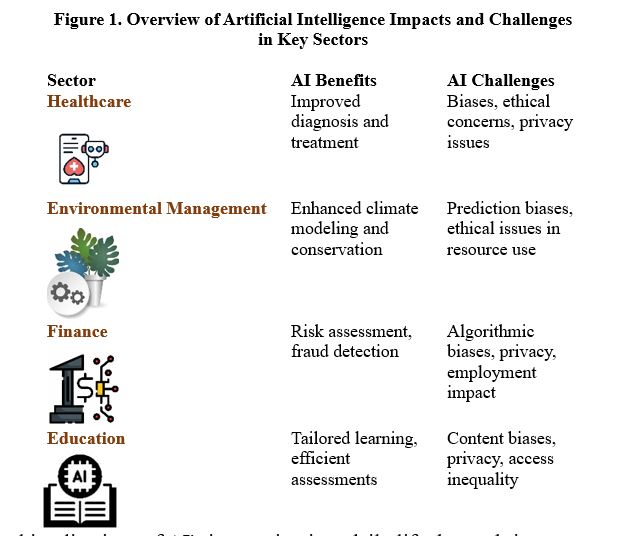AI Ethics and Societal Perspectives: A Comparative Study of Ethical Principle Prioritization Among Diverse Demographic Clusters
Keywords:
Autonomy, Demographics, Ethical Principles, Privacy, Societal Impact, Technology Usage, TransparencyAbstract
Given the resource-intensive and occasionally impracticable nature of concurrently addressing all AI ethical principles, it becomes imperative to examine how distinct societal clusters assign varying degrees of importance to these principles when they are collectively implemented. This examination is crucial for developing a deeper understanding of societal priorities to facilitate more effective and contextually relevant applications of AI ethics. This study employed a qualitative research approach to examine the prioritization of various ethical and social concerns associated with artificial intelligence (AI) across different demographic groups. The research focused on diverse categories including age, educational level, industry/sector, technology usage, and gender identity, with a particular emphasis on ethical and social concerns such as autonomy, sustainability, transparency, safety and security, fairness and non-discrimination, privacy and data governance, accountability, and beneficence. A purposive sampling method was applied to ensure a representative sample of 280 participants. Data was primarily gathered through open-ended, semi-structured interviews, supplemented by a pilot study to refine the interview methodology. Content analysis was conducted on the interview transcripts to identify thematic categories and discern patterns in prioritization among demographic groups. The findings revealed significant variation in the prioritization of AI ethical principles across demographic groups. Young adults, for instance, highly valued autonomy, sustainability, and transparency, while middle-aged adults prioritized safety, privacy, and accountability. In contrast, older adults showed a preference for beneficence, fairness, and privacy. Educational level also influenced prioritization; those with higher education degrees tended to prioritize more complex and forward-looking aspects of AI ethics such as sustainability and beneficence, whereas those with lower educational attainment focused on immediate and tangible concerns like safety and privacy. Industry and sector-specific variations were also notable. For example, professionals in the technology and AI sector emphasized transparency and autonomy, while those in healthcare prioritized beneficence, safety, and privacy. Government and public policy professionals showed a strong inclination towards accountability, fairness, and privacy. Technology usage levels influenced prioritization as well. Frequent technology users valued transparency and autonomy, while those with limited technology usage focused on safety and security. Gender identity also played a role; for instance, individuals identifying as male prioritized autonomy and transparency, whereas female-identifying individuals focused on privacy and fairness. This study provides an in-depth understanding of how different demographic groups prioritize AI ethical principles. It highlights the necessity for AI development and policy-making to be cognizant of these diverse perspectives, ensuring inclusive and equitable AI practices.
Keywords: Autonomy, Demographics, Ethical Principles, Privacy, Societal Impact, Technology Usage, Transparency

